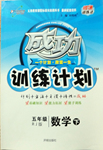题目内容
第二节 (共5小题;每小题2分,满分10分)
根据短文内容,从短文后的选项中选出能填入空白处的最佳选项。选项中有两项为多余选项。
“You do not need to be a rocket scientist.” Americans hear these words often.
People say them in schools, offices and factories. Broadcasters on radio and television use them.
How did the expression begin? No one seems to know it. 66 “It grew,” he says, “because rocket scientists probably are the most intelligent people around.”
Not everyone would agree. Some people might be considered more intelligent than rocket scientists. For example, a person who speaks and reads fifteen languages, or a medical doctor who operates on the brain. Still, many people would agree that there is something special about scientists who build rockets. 67
Moving pictures from before World War II showed a man named Buck Rogers landing on the planet Mars. He was a hero who could withdraw any enemy from outer space. The rocket scientist is a different kind of hero. 68
Rocket scientists, however, can have problems just like everyone else. A Washington rocket scientist tells about a launch that was postponed many, many times. Finally, everything seemed right. Mechanical failures had been repaired. The weather was good. The scientists had planned that part of the rocket would fall into the ocean after the launch. All ships and boats within many kilometers of the danger area had been warned. But in the last few seconds a small boat entered the area. 69
70 One scientist said, "As a child I loved to build rockets. Now I am grown. I still love to build rockets. And now I get paid for it."
|
A.he or she makes space travel possible. |
|
B.It’s dangerous for rocket scientists to build rockets. |
|
C.Maybe it has something to do with the mystery of space travel. |
|
D.When the work goes well, most rocket scientists enjoy their jobs. |
E. Have you ever heard of the space travel?
F. But an official of the American space agency, NASA, says the expression just grew.
G. Once again, the launch was put off.
66—70 FCAGD
【解析】略

 教学练新同步练习系列答案
教学练新同步练习系列答案 课前课后同步练习系列答案
课前课后同步练习系列答案 课堂小作业系列答案
课堂小作业系列答案 黄冈小状元口算速算练习册系列答案
黄冈小状元口算速算练习册系列答案 成功训练计划系列答案
成功训练计划系列答案第二节(共5小题;每小题2分,满分10分)
根据短文内容,从短文后的选项中选出能填入空白处的最佳选项。选项中有两项为多余选项。
What is your favorite color? Do you like yellow, orange, and red?___71___ Do you prefer grays and blues? Then you are probably quiet, shy, and you would rather follow than lead. You tend to be a pessimist(悲观者). At least, this is what psychologists tell us, and they should know, because they have been seriously studying the meaning of colors preference, as well as the effect that colors have on human beings. ___72___If you happen to love brown, you did so, as soon as you opened your eyes, or at least as soon as you could see clearly.
___73___A yellow room makes most people feel more cheerful and more relaxed than a dark green one; and a red dress brings warmth and cheer to the saddest winter day.___74___ A black bridge over the Thames River, near London, used to be the scene of more suicides than any other bridge in the area ---until it was repainted green. The number of suicide attempts immediately fell sharply; perhaps it would have fallen even more if the bridge had been done in pink or baby blue.
___75___It is an established fact that factory workers work better, harder, and have fewer accidents when their machines are painted orange rather than black or grey.
|
A.On the other hand, black is depressing. |
|
B.They tells us that we do not choose our favorite color as we grow up——we are born with our preference. |
|
C.The rooms are painted in different colours as you like. |
|
D.If you do, you must be an optimist(乐观者), a leader, an active person who enjoys life, people and excitement. |
E. Light and bright colors make people not only happier but more active.
F. Life is like a picture or a poem, full of different colours.
G. Colors do influence our moods——there is no doubt about it .
第二节(共5小题;每小题2分,满分10分)
根据短文内容,从短文后的选项中选出能填入空白处的最佳选项。选项中有两项为多余选项。
I was in Tokyo last spring, walking in the street and talking with my dear friend Kirsten. 71 It turned out to be a group of four very hip Japanese college students playing their music instruments for anyone who would listen.
72 In the middle of the second song, an old homeless man broke through the crowd and started shouting at the band. The musicians did their best to ignore him but the man would not go away. It seemed he was angry about the loud noise.
I remember there were probably two dozen people watching this. 73 I was also helpless because first, I couldn’t speak much Japanese, and second, the homeless man was starting to get more and more violent. At one point, he picked up a stick and started banging on the drum set.
This was more than the young drummer could take. He stopped playing, stood up and pushed the old man to the ground.
74 He knelt down next to the old man, took hold of his hands and asked him if he was alright. I couldn’t understand what was being said, but I will never forget the way this young man helped bring the fallen man to his feet. And I will never forget the way he carefully placed his arm around the old man’s shoulders and quietly walked him away.
75 Maybe this old man was a prince in disguise. And maybe he was waiting to see someone act, just once, with beauty and courage.
|
A.I couldn’t help but wonder. |
|
B.All of them went away at once. |
|
C.Suddenly, we heard the sound of a jazz band. |
|
D.Everybody became angry with the old man. |
E.But no one knew what they could or should do.
F.However, not everyone was enjoying the music.
G.At that time, a young Japanese man went through the crowd quietly.